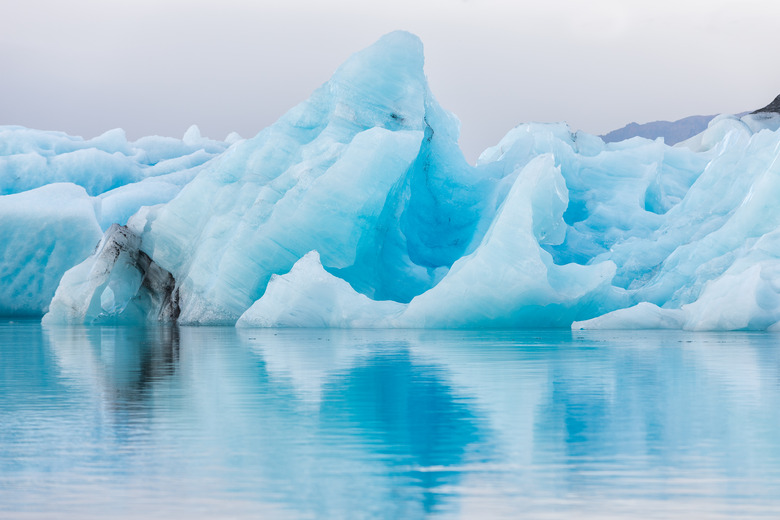How Can We Stop Glacier Melting?
The structure of a glacier is constantly fluctuating. Melting is natural and is counteracted by falling snow that is compacted into ice and restores the surface area of the glacier. However, with global warming occurring at an unnatural rate, glaciers are melting much faster than they can be replenished. The only way to slow rapid glacial melting is to slow global warming.
TL;DR (Too Long; Didn't Read)
Glaciers melt naturally, but in the usual course of things are also restored by additional snowfall. Because rapid glacial melting is caused by global warming, you'd have to slow or stop global warming in order to stop the melt.
Global Warming Issues
Global Warming Issues
Glaciers play a crucial role in the prevention of global warming, acting as giant mirrors, deflecting sunlight from the Earth's surface back into the atmosphere and regulating the temperature of the planet. Runoff from glacial melting forms rivers that people around the world depend on for fresh water. Today in the Himalayas, people are facing water shortages due to decreased glacial melt.
Humankind has become dependent on the burning of fossil fuels to support our way of life, but it increases global warming at an unnatural rate. To restore the glaciers we need to utilize alternative energy sources, increase our energy efficiency and decrease our individual carbon footprints.
Alternative Energy Solutions
Alternative Energy Solutions
Alternative energy sources provide solutions to global warming. Solar panels are made up of solar cells that trap the heat from the sun and convert it into energy. Wind turbines are towers that use the kinetic energy from the wind to generate power. Geothermal energy utilizes the heat from inside the earth. Biofuels such as ethanol can be produced in your back yard by fermenting and mixing vegetable, fruit and grain waste; ethanol is used to make biodiesel fuel, a clean burning fuel for diesel engines. Electric cars are battery-powered instead of relying of the highly polluting internal combustion engine; hydrogen fuel cells are being developed for these batteries. Tidal and wave power utilize the massive power of the ocean by harnessing the energy with generators placed on the ocean floor.
Individual Solutions
Individual Solutions
Drive as little as possible. Many urban areas have excellent public transportation networks. You can carpool, bicycle, walk or jog to your destination. Save power at home by taking shorter showers, turning off the water while brushing your teeth, turning off lights when they are not in use, hanging laundry outside to dry and unplugging electronics when they are not being used.
These seemingly little things make a big impact if they are done on a large scale, and they'll go a long way toward reducing your carbon footprint and saving the glaciers.
Cite This Article
MLA
Rae, Kara. "How Can We Stop Glacier Melting?" sciencing.com, https://www.sciencing.com/can-stop-glacier-melting-5377309/. 13 April 2018.
APA
Rae, Kara. (2018, April 13). How Can We Stop Glacier Melting?. sciencing.com. Retrieved from https://www.sciencing.com/can-stop-glacier-melting-5377309/
Chicago
Rae, Kara. How Can We Stop Glacier Melting? last modified March 24, 2022. https://www.sciencing.com/can-stop-glacier-melting-5377309/
